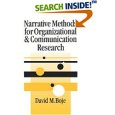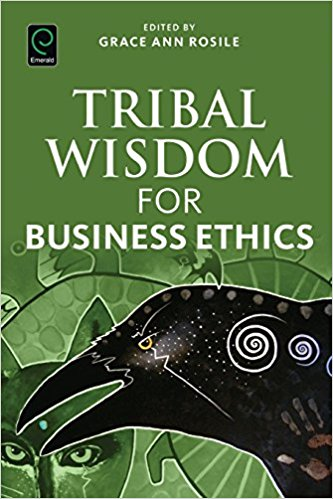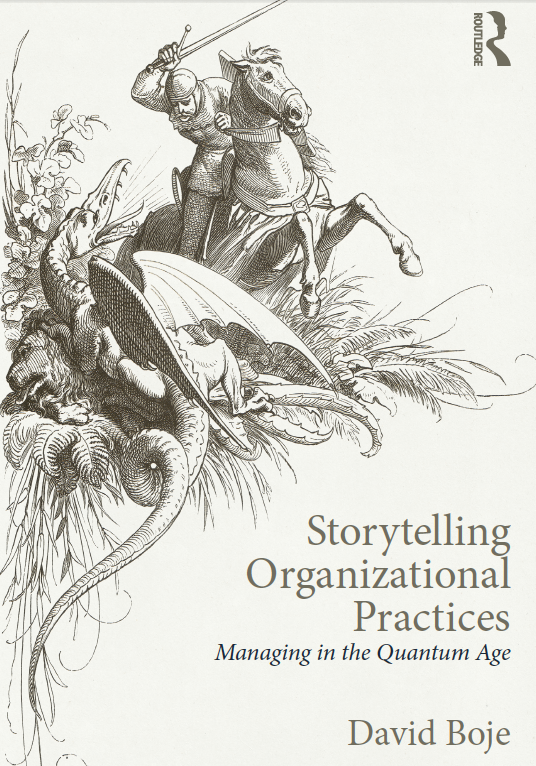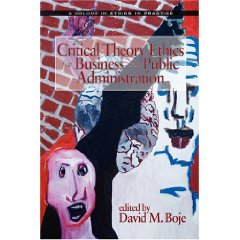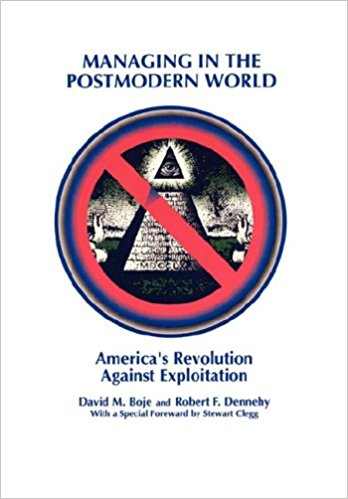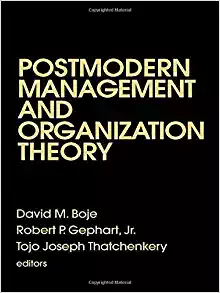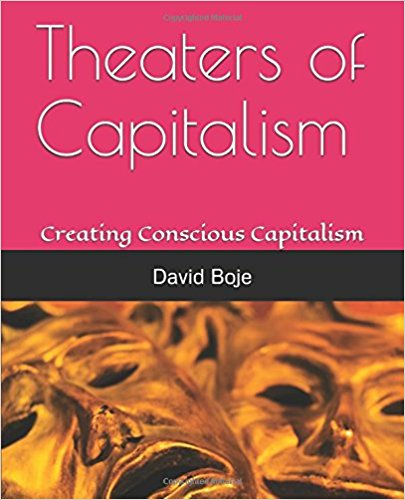Friday (May 25 at 2:00-3:30 PM). Aalto University Department of Management Studies (Thanks toHanna Koli for her admin assistance).
David Boje uses antenarrative methods to critique Apple's & VW's Fake narratives of CSR, along with Neoliberalism, and Economist narratives of globalization. Living story (indigenous ways of knowing) ways of existing hold answers to saving humanity from 6th Extinction. Held at Aalto University, Helsinki Finland May 25 2018.
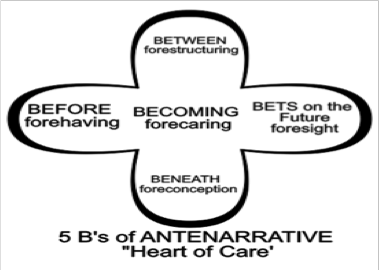
Antenarrative Reading List
Boje, D. M. (2001). Narrative methods for organizational & communication research. Sage.
Boje, D. M. (2008). Storytelling organizations. Sage.
Boje, D. M. (Ed.). (2011). Storytelling and the future of organizations: An antenarrative handbook. Routledge.
Vaara, E., & Tienari, J. (2011). On the narrative construction of multinational corporations: An antenarrative analysis of legitimation and resistance in a cross-border merger. Organization Science, 22(2), 370-390.
Weick, Karl E. "Organized sensemaking: A commentary on processes of interpretive work." Human Relations 65.1 (2012): 141-153.
Rosile, G. A., Boje, D. M., Carlon, D. M., Downs, A., & Saylors, R. (2013). Storytelling diamond: An antenarrative integration of the six facets of storytelling in organization research design. Organizational Research Methods, 16(4), 557-580.
Haley, Usha CV, and David M. Boje. (2014) "Storytelling the internationalization of the multinational enterprise." Journal of International Business Studies 45, no. 9 : 1115-1132.
Boje, D. M., Haley, U. C., & Saylors, R. (2016). Antenarratives of organizational change: The microstoria of Burger King’s storytelling in space, time and strategic context. human relations, 69(2), 391-418.
Boje, D. M., Svane, M., & Gergerich, E. M. (2016). Counternarrative and antenarrative inquiry in two cross-cultural contexts. European Journal of Cross-Cultural Competence and Management, 4(1), 55-84.
Vaara, E., Sonenshein, S., & Boje, D. (2016). Narratives as sources of stability and change in organizations: Approaches and directions for future research. The Academy of Management Annals, 10(1), 495-560.
Stierand, M., Boje, D. M., Glăveanu, V., Dörfler, V., Haley, U. C., & Feuls, M. (2017). Paradoxes of “creativity”: Examining the creative process through an antenarrative lens. The Journal of Creative Behavior.
Riach, K., Rumens, N., & Tyler, M. (2016). Towards a Butlerian methodology: Undoing organizational performativity through anti-narrative research. human relations, 69(11), 2069-2089.
“Butler-inspired notion of ‘anti-narrative’ interviewing, to which we now turn, in order to develop, in a very practical sense, a method of data generation and analysis that would reflect our methodological commitment to a reflexive undoing of organizational performativity”
“Our anti-narrative approach therefore seeks to disrupt the apparent linearity, stability and coherence of organizational performances by ‘undoing’ (Butler, 2004) seemingly coherent subjectivities as a methodologically reflexive move.”
What can we do to make it work? Mother Earth Economy Model is True Storytelling of our Potentiality
IWOK stands for Indigenous Ways of Knowing. Mātauranga Māori means Māori Ways of Knowing (MWOK) the environment. Both are about Webworks of Living Stories that are different from Western narrative research methods that reduce the aliveness of living story to form and linear plot structure. Boje will introduce deep layers of living story research using the Volkswagen Dieselgate scandal and its relation to conflict mineral mining after generations of colonization in Democratic Republic of Congo.
I am increasingly concerned about the current state of Globalization Storytelling in what Zygmunt Bauman calls 'Liquid Modernity.' It is a time when Post-Fordism has merged with the worst of Postmodern hyperreality, in a time of Fake News, Fake Presidents, Fake Corporations where getting to 'true storytelling' methodology is all but impossible. We live in a time when racist rhetoric, ethnic prejudice, and climate denial has become nornalized in Western ways of narrative in our academic and political institutions. I think its time to engage in more IWOK and less WWOK of corporate speak, a more critical postmodern paradigm of storytelling.
Kaua e takahia te mana o te tangata Nga Huia Te Awe Kotuku – Don’t trample on the integrity of the people -- cited in Tuhiwai Smith 1999: 120

